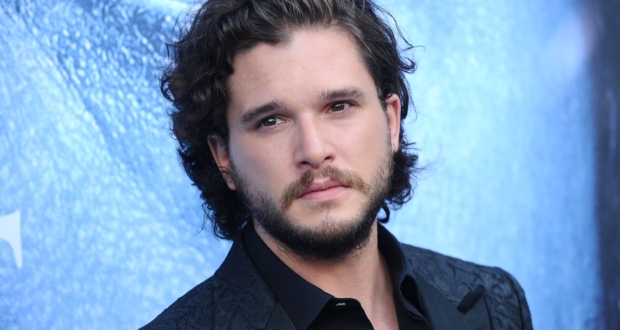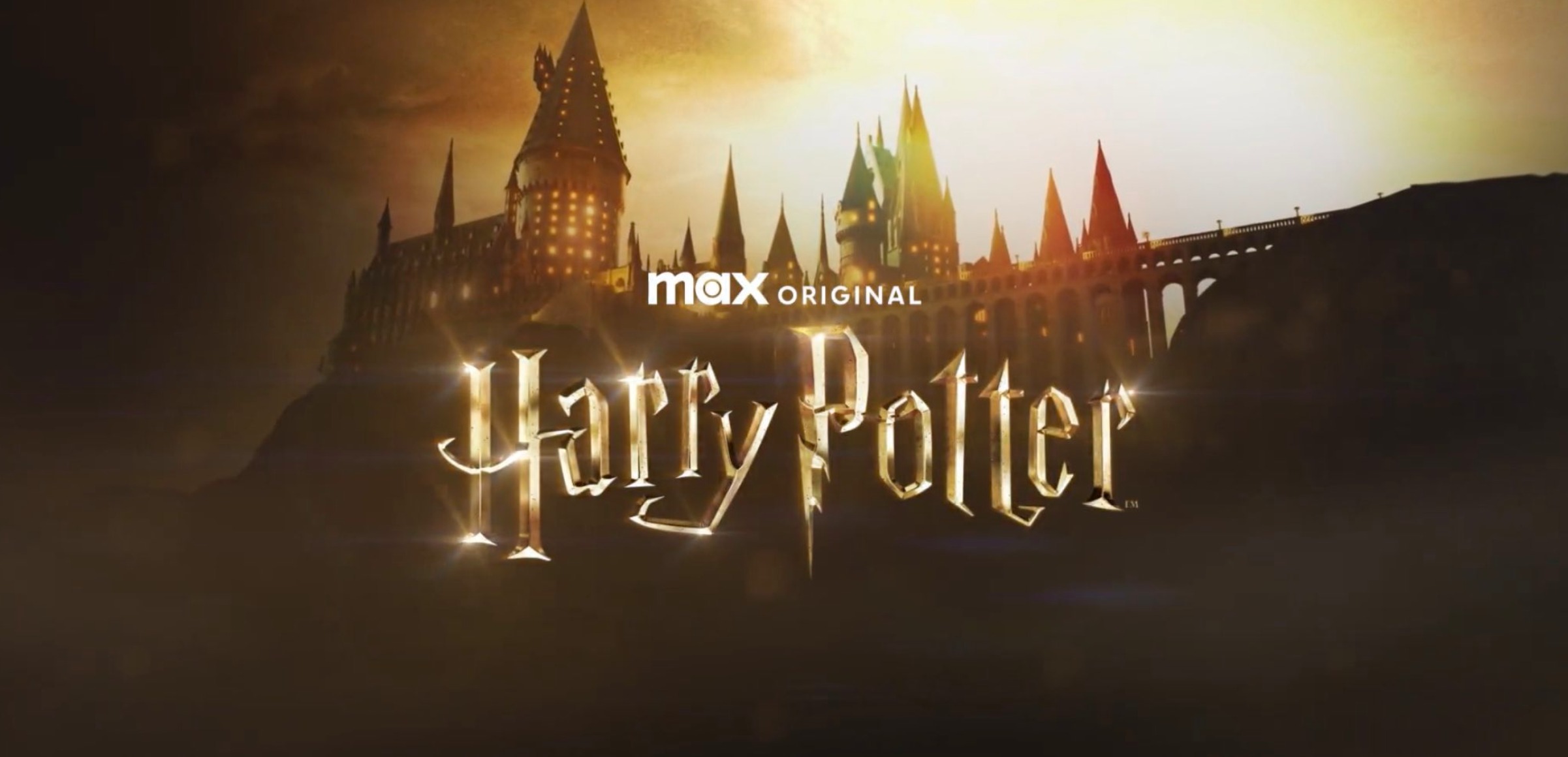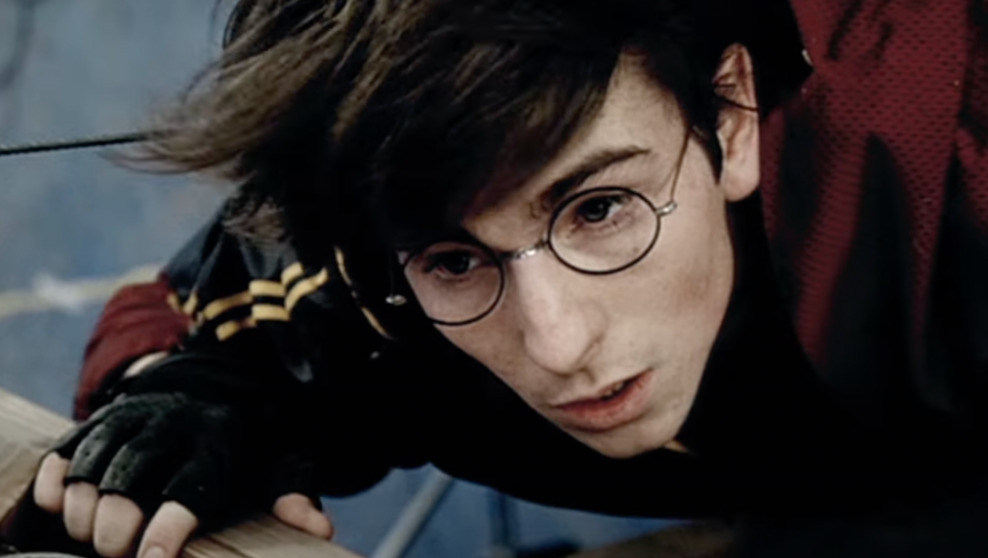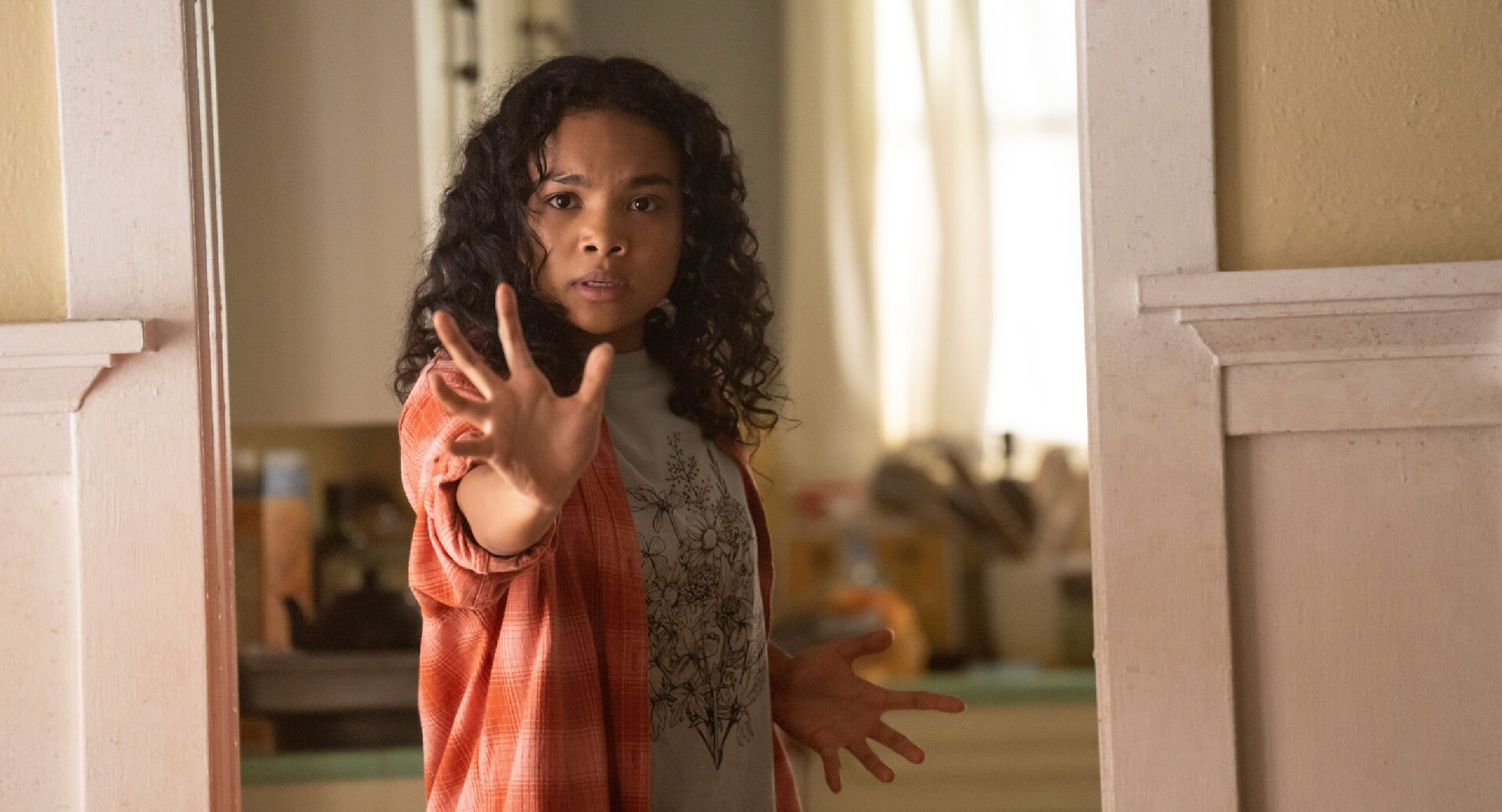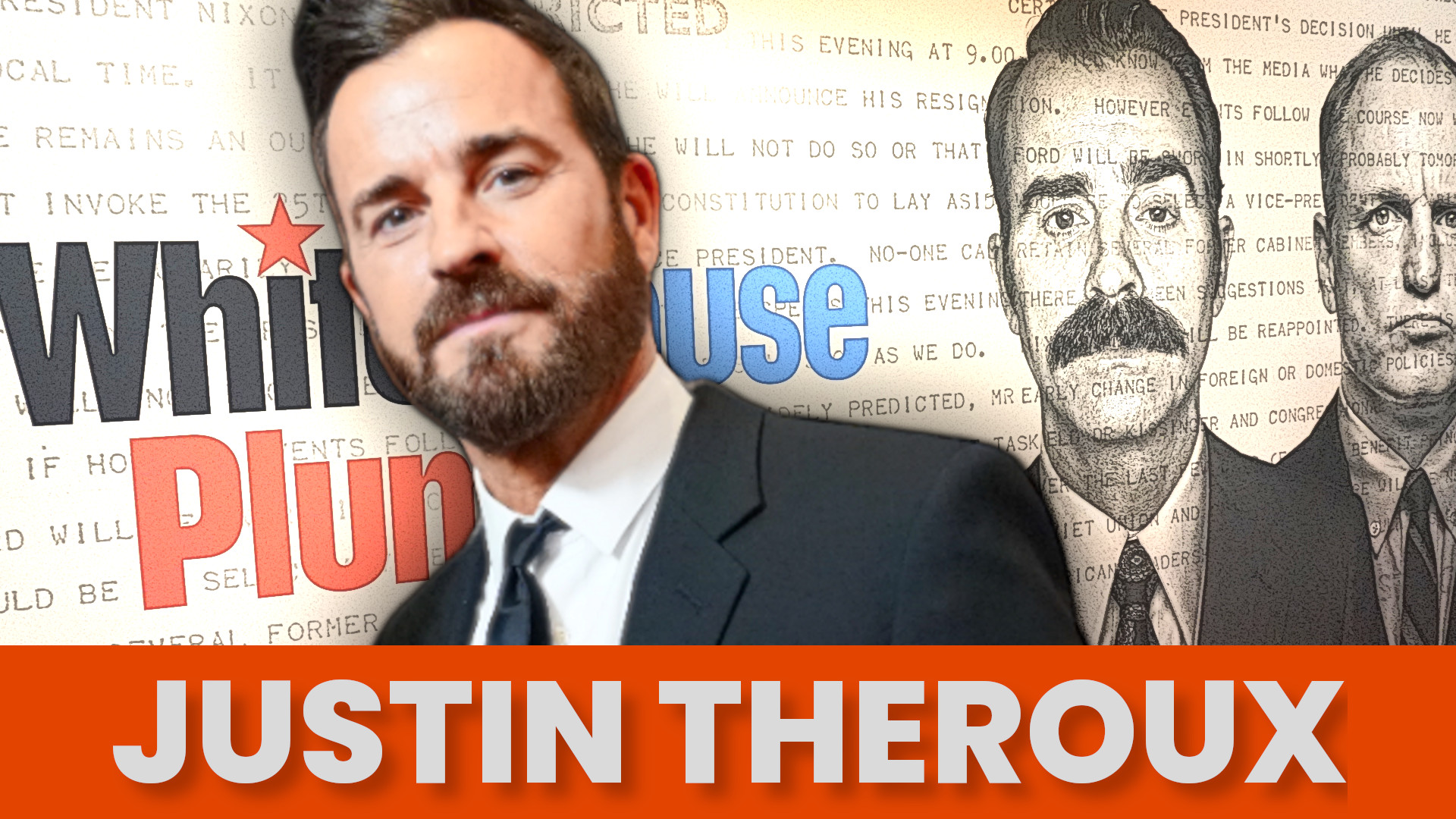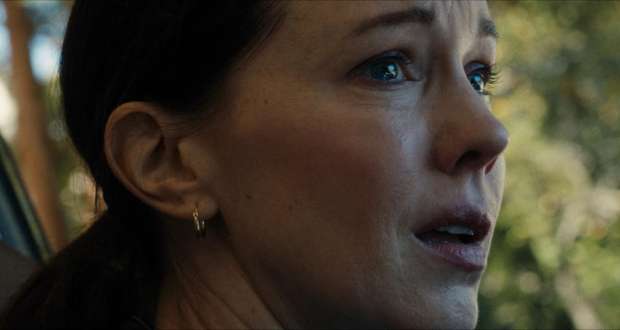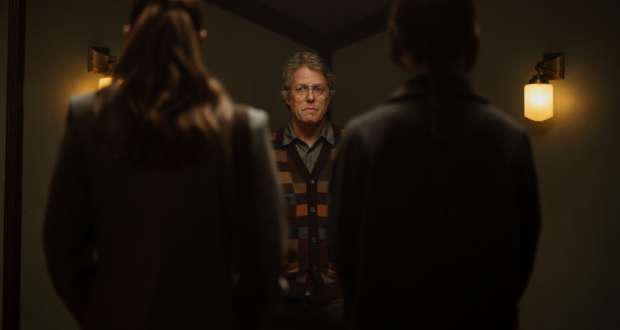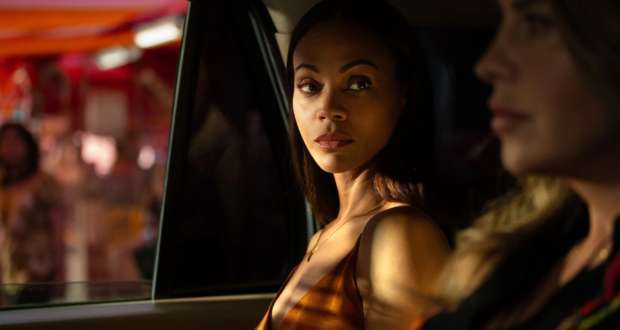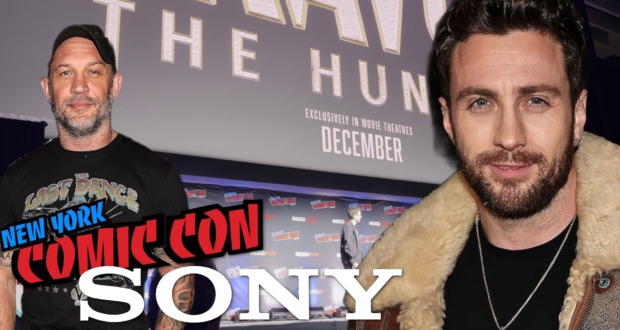I just finished watching all four episodes of DMZ with Rosario Dawson and Benjamin Bratt available on HBO MAX. In Austin at SXSW, the first episode, which I saw at the World Premiere on Sunday, March 13th, was dynamite. The other three episodes continue the chaos and action-packed drama. The United States has experienced a Civil War, with Manhattan and its 300,000 trapped residents within becoming a demilitarized zone.
The set-up of the comic-book generated plot is that Alma must journey back from the relative safety of the U.S. outside of Manhattan and re-enter the DMZ to try to find the child she became separated from when evacuating 8 years prior. I will try not to give away too many plot points. I do want to make some observations about the entire season, not just the first episode. Ava Duvernay directed one episode, but Ernest Dickerson directed the rest of the series. It is all done well, with special mention of the acting, special effects, script, and title sequence.
Here are some “Pro’s” and “Con’s” observations for the entire series. I’m including the pictures taken on top of the Riley Building in downtown Austin on Sunday, March 13th. Warner Media took over this location for a press event at noon, just prior to the film’s 4:15 p.m.
THE GOOD:

The cast of “DMZ” at SXSW (L to r): Freddy
Miyares, Benjamin Bratt, Rosario Dawson, Hoon Lee and Writer/Producer Roerto Patino.
- The acting is top-notch. Rosario has some gut-wrenching scenes and she gives it her all. She also has to be a kick-ass heroine, fighting, running, etc. Great work. The Writer/Producer Petino praised Dawson’s work from the stage of the Paramount. Watching Benjamin Bratt at work as the charismatic gang leader is equally riveting.
- I have always thought that Benjamin Bratt was an under-utilized leading man. The parts I’ve seen Benjamin in did not make the most of his charismatic presence. Here he is magnetic as the would-be leader of the DMZ, a man who fought in Afghanistan and should know that those who fight and die in the trenches are used and abused by their superiors. Parco Delgado, Bratt’s character, is willing to do whatever it takes to keep and hold power and we see that in episode 1 and all others.
- The writer/director plucked Rosario’s character from the comic book and amplified it is going for a “good versus evil” vibe that puts Alma’s character as the White Knight and leaves us wondering how she will cope with the brutality of a Parco Delgado. The way that Parco is dispatched was fitting.
- This is a star-making turn for young actor Freddie Miyares, who plays the adult version of Rosario’s son, Christian. Miyares first came to the public’s attention playing one of the Central Park Five in “When They See Us” and he also appeared in “The L Word.” He has worked with Ava Duvernay previously.
- The young actors In the cast—-Madison Johnson, Venus Ariel, Jordan Preston Carter—are all good and natural actors.
- The explosions and helicopters and ruins of the war-torn DMZ are beautifully rendered.
- The opening credits are outstanding.
- Hoon Lee as Wilson was good, as was Reynaldo Gallegos as Cesar.
- The screenplay written by Roberto Patino has some great lines that relate to ALL wars and ALL war zones and victims, so it is particularly timely against the backdrop of the Ukraine/Russia ongoing assault.
- There is the possibility of continuing this series past the four episodes in the can.
THE BAD:

“DMZ” cast: (l to r) Benjamin Bratt, Freddy Miyares, Rosario Dawson, Hoon Lee, Roberto Patino (Couresy of Warner Media).
- For my tastes, the constant man-on-man beat-downs could have been reduced to, at most, two. As it is, there are several. I am not a fan, although others will be. I will say that the fight between the fit 48-year-old Benjamin Bratt and the much-younger Freddy Miyares was epic, as was the fight scene between the characters of Parco Delgado and Wilson.
- There were a lot of “war scenes,” which makes sense in that this is a war zone, but who is fighting whom and why is not made perfectly clear, other than the infighting amongst the various New York City sections of Manhattan.
- I also watched a few episodes of the new “Halo” series and “DMZ” is infinitely superior. “Halo” involved killing people that we haven’t even met, let alone learned to care whether they live or die, whereas, in this four-part series, we get to know the characters first.
- One power broker has (supposedly) gained control of water. How? We are told very few of the mechanics of power in this DMZ. Did she take over a dam or what?
- The function or purpose of the United States Army is not made totally clear. Are they trying to take over Manhattan from the locals because the locals are defending their city to the death, as is happening in Ukraine now? Naaaah. The New Yorkers I personally know (and I know a few) would not be fighting to the death against the U.S.’s superior firepower. (They might want better garbage pick-up, however.)
- Other than Rosario’s star turn as the Big Kahuna, the other women get short shrift. The kids actually get more screen time and more lines than the other females, including the girlfriends of characters Skel and Parco.
- Did Coca-Cola underwrite a big part of this film’s costs? I ask because of one specific scene. I was reminded of the Coca-Cola scene in “Dr. Strangelove,” for some reason, but, today, the specific mention of a product in such glowing terms is usually a product tie-in. I thought the idea that the machine would have ANY Coke cans left in it, or that they wouldn’t be flat, was preposterous. Many of my soft drinks are flat the instant I bring them home from the grocery store, so I found the delicious-ness of Coca-Cola to be highly suspect in one scene in the plot.
- The individual(s) manning the radio broadcast(s) is somewhat unclear. Who was it? Who is it going to be?
- Lots of character names are dropped and, eventually, we find out who some of them are, but simply mentioning “Susie” (et. al.) didn’t cut if for me. But, then, I was not a reader of the comic books during their hey-day.
I enjoyed all the lines that underscored the futility of violence as a solution to world problems, and, while I praised them in my original review and even repeated some of those lines, verbatim, with the current world situation, the more the better, so I’m both praising writer/producer Roberto Patino for his excellent work in that regard and saying, “More, please


